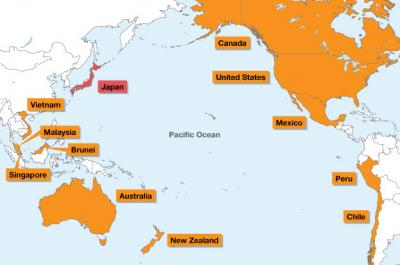Trans-Pacific Partnership (TPP): What’s at Stake and What Does it Mean for the Global Trading System?
GEG Roundtable Discussion
Agreed in October 2015, the TPP is a historic moment for the global trading system. It includes twelve countries representing about 35 per cent of the global economy and is one of the most ambitious trade deals ever signed, aiming to write new rules for the 21st century global economy. The public policy implications are substantial and range from the levels of patent protection that should be given to pharmaceutical companies; the extent to which trade rules should be allowed to limit government involvement in the economy; whether and to what extent foreign companies should have the right to take governments to international arbitration; and the extent to which labour and environmental standards should be enforced through trade agreements.
The TPP is as much about geopolitics as trade, as the goal for the US and Japan (the two biggest countries in the TPP) was to create an economic zone in the Pacific Rim that might balance Beijing’s presence in the region. It has important ramifications for the global trading system, as it comes at a time of economic malaise and stalled multilateral negotiations at the World Trade Organisation. Given its high stakes, it is perhaps unsurprising that TPP has been highly divisive, with firms, trade unions, farmers and civil society activists lobbying hard to shape outcomes.
Our two experts will brief us on the public policy implications of the TPP and what it means for the global trading system.
- Ricardo Melendez Otriz, CEO of the International Centre for Sustainable Trade and Development
- Datuk J. Jayasiri, Chief Negotiator for the TPP for Malaysia
Speaker Bios:
Datuk J. Jayasiri is Deputy Secretary General (Strategy and Monitoring), Ministry of International Trade and Industry of Malaysia. He has dealt extensively with trade issues and held a range of positions, in MITI as well as the Ministry of Primary Industries and the Permanent Mission of Malaysia in Geneva. In July 1997, he assumed the post of Principal Assistant Director of Multilateral Trade Relations in MITI. He served as Director of Asia Pacific Economic Cooperation and was appointed as Malaysia’s Senior Official to APEC from 2002-2006. He was Senior Director, Bilateral and Regional Relations from 2006-2008, Senior Director of FTA Policy and Negotiations from 2008-2009 and Senior Director of Multilateral Trade Policy and Negotiations from 2009-2013 before moving on to be the Senior Director in charge of Strategy and Monitoring. In these roles, he has represented Malaysia in multilateral trade negotiations in GATT/WTO, APEC and various FTAs including the Malaysia-Japan Free Trade Agreement (FTA) and the ASEAN-China FTA. He served as the chief negotiator for Malaysia in the Trans-Pacific Partnership (TPP) negotiations.

